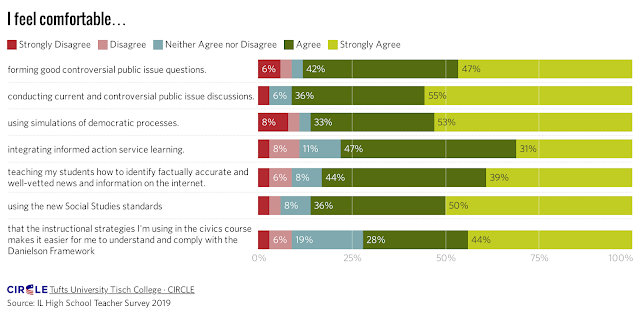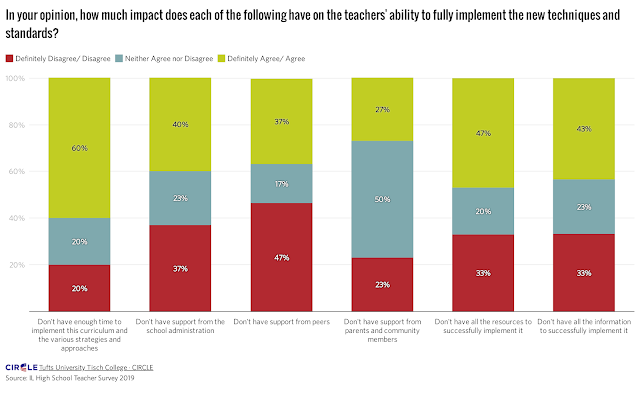The Recipe for Successful Civic Learning Implementation

by Shawn P. Healy, PhD, Democracy Program Director Earlier this month, we released a summative report on the #CivicsIsBack campaign produced by the Center for Information Research on Civic Learning and Engagement ( CIRCLE ) at Tufts University titled “ Building for Better Democracy Together .” We then explored the impact of the campaign on teachers, schools, students, and our civic education nonprofit partners, followed by CIRCLE’s overall assessment of our civics course implementation model. On Friday we tested the model’s sustainability , and today, in the final installment of a five-part series, we weigh its applicability to other states. Among the key ingredients in the Illinois #CivicsIsBack Campaign’s success was its comprehensive approach to building capacity among civics teachers. Teachers’ capacity and dispositions were nurtured with empathy and encouragement: One of the key observations that the team used from early on, is that teacher disposition (i.e., how comfortable ...






